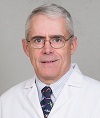Originally Published: Common Sense, Fall 2011
Original Author: Leana S. Wen, MD MSc
 |
| Robert McNamara, MD FAAEM |
This is a new column in Common Sense where Leana S. Wen, AAEM/RSA secretary/treasurer, interviews leaders in emergency medicine about their experiences, perspectives and insights. The inaugural conversation is with Robert McNamara, MD, former president of AAEM and current professor and chair at Temple University.
LW: Take me through your education and training and tell me a bit about what you do now.
Dr. McNamara: I received my MD from Jefferson Medical College in Philadelphia in 1982, and then stayed in the city to complete my residency in EM at The Medical College of Pennsylvania. I’m currently the Professor and Chairman of the Department of EM at Temple University, and also serve as the Chief Medical Officer of Temple University Physicians. I continue to work clinically; I subscribe to the General Patton theory that you have to lead from the front and not from behind. You have to be out there on the ED floor like everyone else seeing patients, and that includes still working nights and weekends.
LW: In addition to leadership and administration at Temple, you’re also very involved in AAEM, being on the Board of Directors now and also having served as President. When an EP asks you why they should be involved in leadership, what’s your answer?
Dr. McNamara: If you’re not at the table, you’re missing out. Decisions that are going to affect you are going to be made without you. As an EP, you should be involved with your hospital and the health system. Don’t just stay in the fishbowl. I’ll tell you what annoys me: all those ads you see in the journals and news publications about how you can go to work for a minimum number of hours and then go surfing. That’s clock punching and destructive to the view of EM. We need to be an integral part of the hospital and healthcare system.
LW: Are EPs well-placed to be leaders in our hospitals?
Dr. McNamara: Absolutely. We are one of the few specialties that see everything. We encounter something from every single specialty in the hospital. It’s easy for us to be leaders because we see the broader picture. When I first started in EM, it was said you can never be a Dean or hospital leader if you’re an EP. Now, a lot of us EPs have become Deans or hospital leaders. A lot of high quality people are going into EM and many of them have what it takes to be leaders in medicine.
LW: You must have seen quite a number of changes in your years in practice.
Dr. McNamara: The last shift I worked, I had a patient who I suspected to have cholecystitis and I did an ultrasound at bedside to figure out the answer. In the old days, you had to fight to get a study after hours. Now, if patients have an acute MI, you can watch their coronaries get opened by thrombolytics or the cath lab. In the old days, you gave them medication and basically watched them infarct in front of you. Our medical advances have been incredible. In terms of changes, I also have to mention that our specialty as a whole has a whole new level of respect. Younger doctors don’t have a sense of how far our specialty has come, but we’ve really come a long way.
LW: Are you excited to be an EP in this current era?
Dr. McNamara: Oh, absolutely. The technology is exciting. The specialty is thriving. To the young doctors, I tell them it’s never going to be an easy specialty. If you don’t have tolerance, if you get angry at your patients, you’re never going to survive. You should feel sad for your patients, empathize with them, and ultimately advocate for them. If we compare what we as physicians have to most of the patients we see it should be clear that we are very fortunate members of society.
LW: There is a lot of rhetoric on the problems facing healthcare in the U.S. What, in your opinion, is the root of these problems?
Dr. McNamara: One thing that’s eroded in healthcare today is physicians’ ability to advocate for their patients without worrying about hospitals, corporations, and insurance companies. Another problem is defensive medicine and the amount of over testing that it causes. CT scanning is going through the roof. There are all kinds of harms to our patients, yet nobody wants to stop scanning because we fear litigation. Doctors need protection NOT to order a test. And we can’t talk about medicine in isolation, either. The context of how expensive medicine is relates to social structure and fundamental problems in our society. Look at obesity. Look at gun violence. It can’t just be, let’s fix medicine. We have to fix society too. Physicians have taken the lead on these public health issues before with advocating for seat belt use or against drunk driving, and we can take the lead again to fix healthcare.
LW: What advice do you have for becoming a better leader?
Dr. McNamara: Don’t stay in the fishbowl. Lead from the front. Those are very important. EPs who seek leadership positions beyond the ED should keep in mind that physicians are your best friends. Administrators will try to divide and conquer. Despite differences among specialties, your biggest supporters are going to be other doctors. A few other tips: sit on something for 48 hours before sending it out. Talk on the phone or in person if you can; an email isn’t as easily retrieved. Praise in public, correct in private. Have your principles and stick to them, don’t ever yield on them but recognize patience and persistence may be needed to achieve what you want. Vow to outlast the scoundrels! At the end of the day don’t let them screw with you or your family’s personal well being, and pay attention to your own needs.
Editor’s note: We would love to have your feedback on this new column. Please send comments and suggest other leaders you would like to see profiled to wen.leana@gmail.com.
